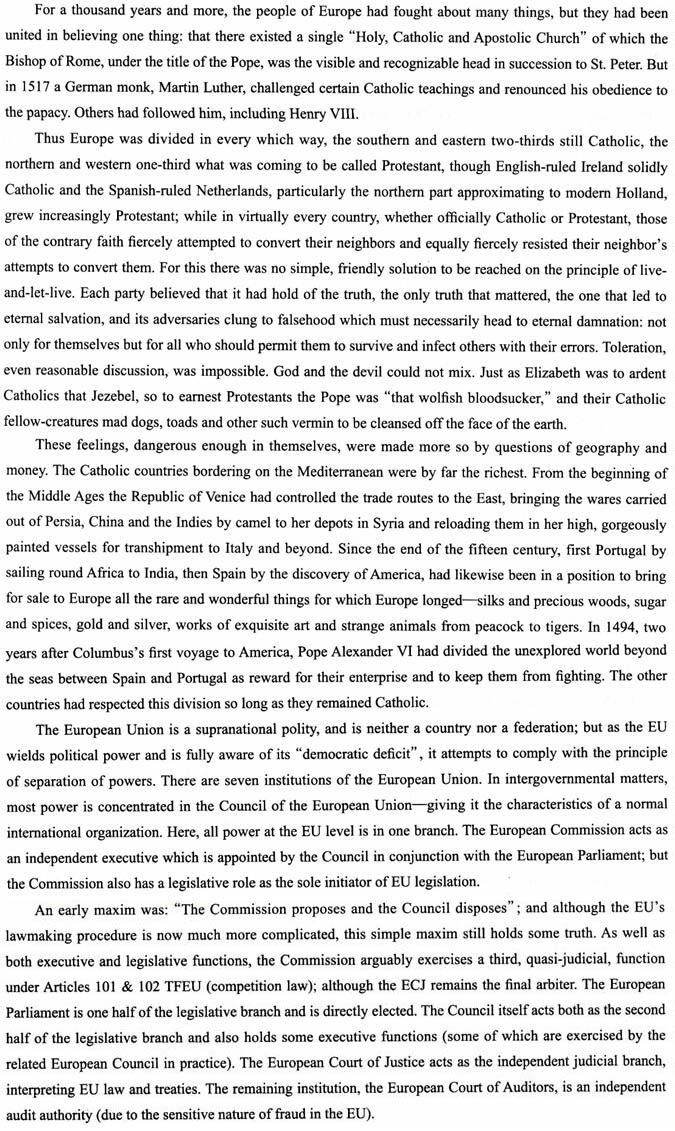What do we learn from the passage?( ) A.The Pope had the supreme power in religion before reform. B.The Pope had the greatest power in every thing outside religion. C.The Pope was the real king in Europe then. D.The Pope was the real ruler in Europe then.

What do we learn from the passage?( )
A.The Pope had the supreme power in religion before reform.
B.The Pope had the greatest power in every thing outside religion.
C.The Pope was the real king in Europe then.
D.The Pope was the real ruler in Europe then.
B.The Pope had the greatest power in every thing outside religion.
C.The Pope was the real king in Europe then.
D.The Pope was the real ruler in Europe then.
参考解析
解析:推理题。根据第一段“一千多年来,欧洲人虽然为许多事情斗争过,可是在信仰上团结一致,都信只有一个神圣的天主教和罗马教皇的教会。那里的罗马大主教称为教皇,是继承圣·彼德之后公认的领袖。可是,1517年德国僧侣马丁·路德向某些天主教教义提出挑衅,拒绝服从罗马教皇,他有很多追随者,其中包括亨利八世(英王)”可知,宗教改革打破了教皇对英国的控制,加强了英国王权的统治,使国王成为英国最高首脑。
相关考题:
已知某国国际收支平衡表中,经常项目差额160亿美元,资本和金融项目差额为-100亿美元,误差与遗漏为1o亿美元,则该国储备资产增减额为( )。A.70亿元B.-70亿美元C.+60亿美元D.+270亿美元